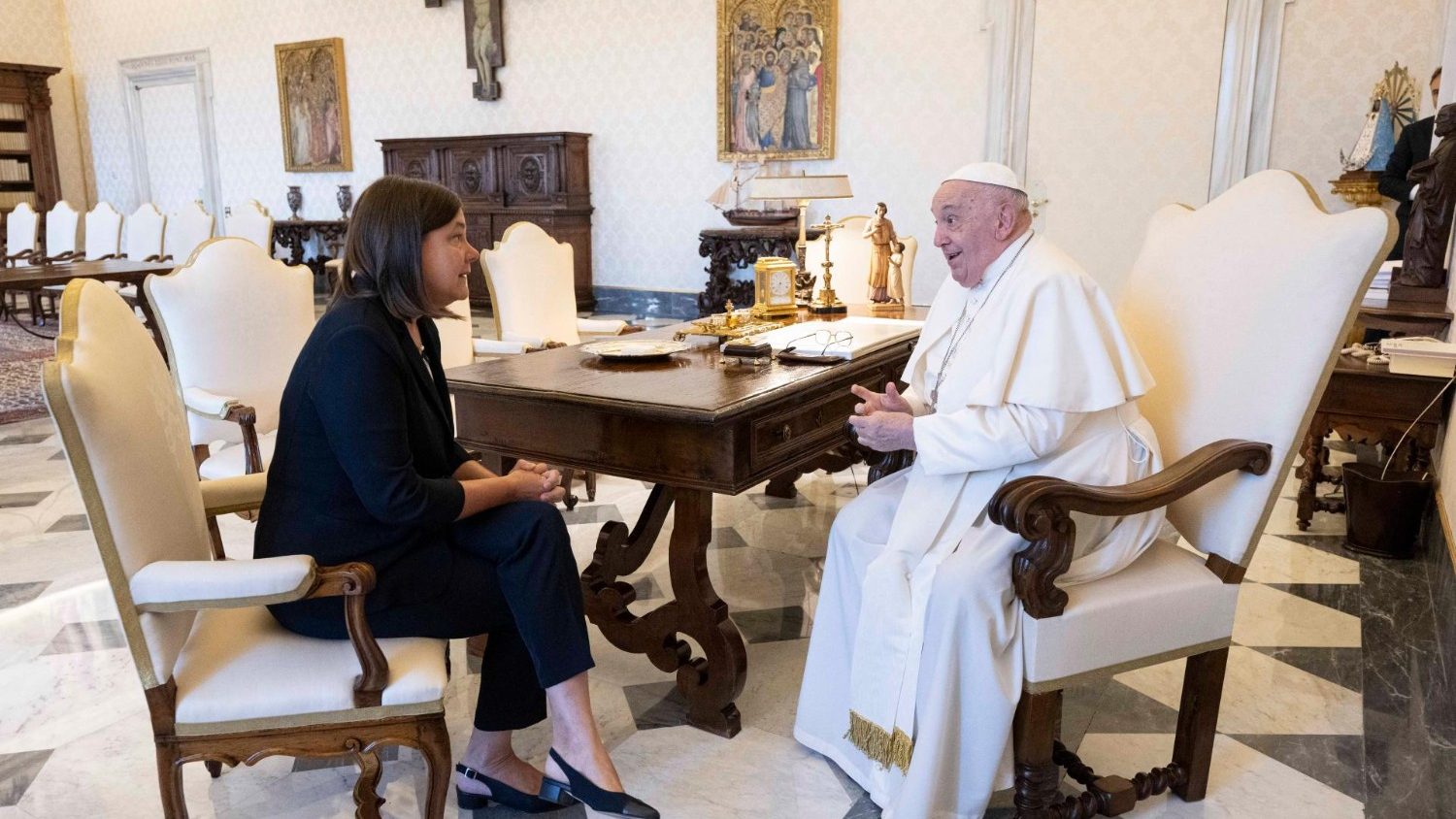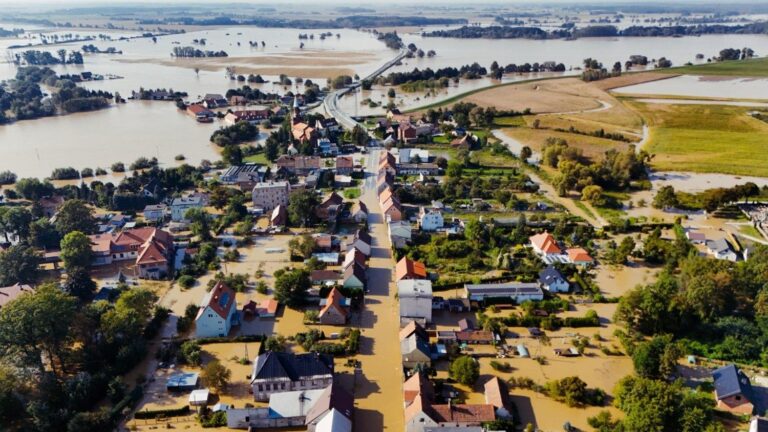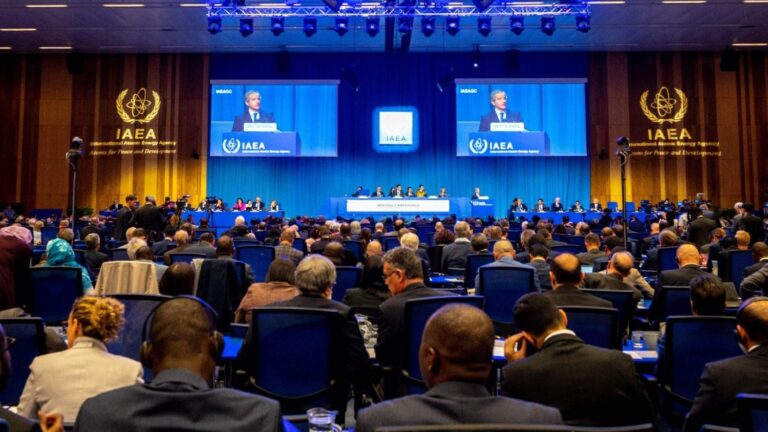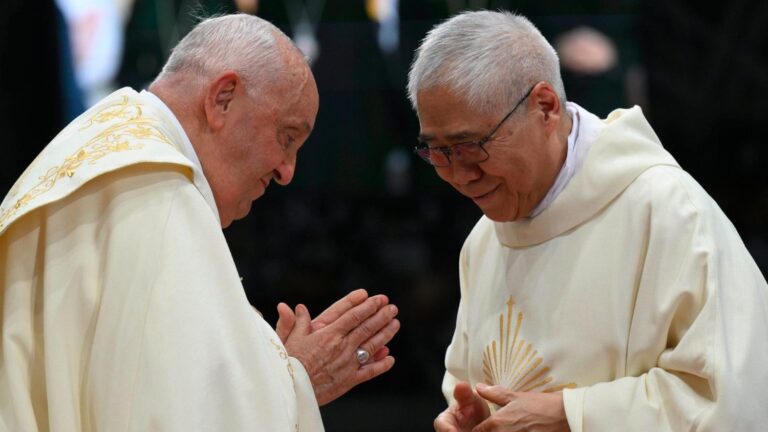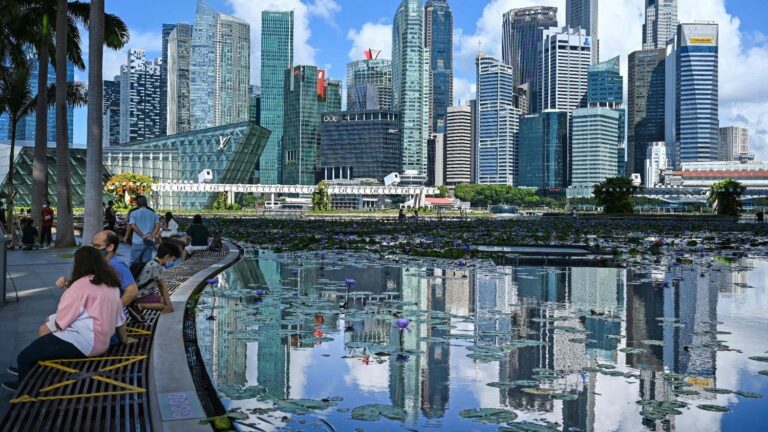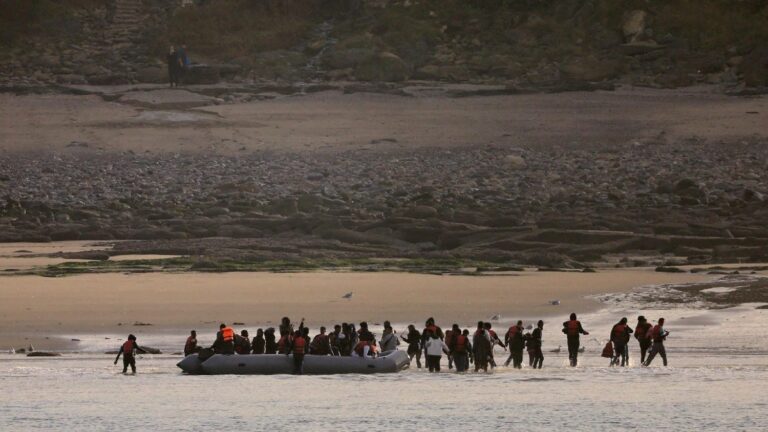Prof. Beccalli: Sacred Heart University aims for holistic education
Vatican news
After an audience with Pope Francis, Elena Beccalli, rector of the Catholic University of the Sacred Heart, said the Italian university seeks to offer “a place of encounter and dialogue between different cultures,” while carrying out projects in developing countries.
By Tiziana Campisi
A “very cordial and promising” meeting, is how Elena Beccalli, rector of the Catholic University of the Sacred Heart, described her audience with Pope Francis on Monday.
She has held the position since July 1, after the Board of Trustees appointed her to a four-year term, making her the first woman to hold the position in the university’s history.
A graduate in economics and commerce from the Milan campus, the 51-year-old is a full professor of the economics of financial intermediaries at the Faculty of Banking, Finance and Insurance, where she has been dean since 2014.
During their audience, she told Vatican News, Pope Francis stressed the need to “educate young people with the mind, the heart and the hands” and underscored the important role of educators, adding a reminder “to never lose (one’s) sense of humor.”
Among the various topics discussed at the meeting, she said, was the issue of the educational emergency.
Professor Beccalli expressed his gratitude to the Pope for his constant support for the university and also highlighted the multiple projects that the Catholic University of the Sacred Heart wishes to pursue on its five campuses in Milan, Brescia, Piacenza, Cremona and Rome.
Q: In today’s multicultural society, marked by a crisis of values and where technological development offers new opportunities while raising ethical questions, what contribution does the Catholic University of the Sacred Heart wish to make?
Professor Beccalli: The Catholic University of the Sacred Heart aims above all to be a place of encounter and dialogue between different cultures and disciplines. This is why fostering dialogue, openness and interdisciplinarity is one of the main characteristics that today define the action and mission of the Catholic University.
Another aspect is to provide a holistic, rigorous and quality education, in the disciplines offered by the twelve faculties that make up our University, while allowing students to flourish as individuals.
Holistic education must not neglect any dimension, including the spiritual dimension, which we are called to promote as a Catholic University. I believe that this dialogue and holistic education can be very beneficial for personal and professional growth, because they offer an openness and solidity that will allow graduates to integrate into their daily lives the values lived at the university.
Q: In the face of the current educational emergency affecting schools, families and society, what is the University’s commitment?
The University’s commitment is strong and twofold. On the one hand, we can contribute by welcoming young people who are currently far from university courses, often for economic reasons.
This openness is materialized by scholarships to reach those who are currently on the margins. I am thinking, for example, of children born in Italy to foreign parents who may not have the means to access higher education and whom we would like to support with significant programs, particularly financial ones.
The second contribution that the University can make is to train teachers and professionals in the school sector to counter this exclusion from the educational system. This is a fundamental contribution because we have tools from various disciplines – psychology, educational sciences and all the humanistic knowledge cultivated at the Catholic University – that can serve as the most powerful antidote to these problems.
Q: No one can be saved alone; we can only be saved together, Pope Francis writes in the encyclical letter All brotherswhere he emphasizes the need for mutual assistance between countries and calls for promoting a culture of encounter. You lead international projects and favor partnerships in the poorest areas of the planet, particularly in the Mediterranean region and in Africa. What specific objectives are you aiming for?
The Catholic University of the Sacred Heart must be a university open to the world. There are several ways to interpret this internationalization of our university.
One is the more traditional approach which consists of opening ourselves up to agreements and partnerships with foreign universities to enable our students to obtain, for example, a double degree with foreign institutions and also to welcome students from other countries on our campuses.
The second idea, which is particularly close to my heart, is that of opening up to the poorest regions of the world, particularly to Africa. We are considering an Africa Plan for the Catholic University of the Sacred Heart.
We are already carrying out many initiatives with African countries in the sectors of health and economic education, but what seems important to me is to create synergies between these initiatives to contribute to the development of these countries.
We can have a greater impact if the knowledge we cultivate is broader and can be integrated to benefit these fields. Today, distance learning is easier thanks to technology.
This is one of the goals of my mandate, because by bringing together different disciplines we can have a positive impact in these poorer areas, from which we also have a lot to learn.
Vatican news
sc
